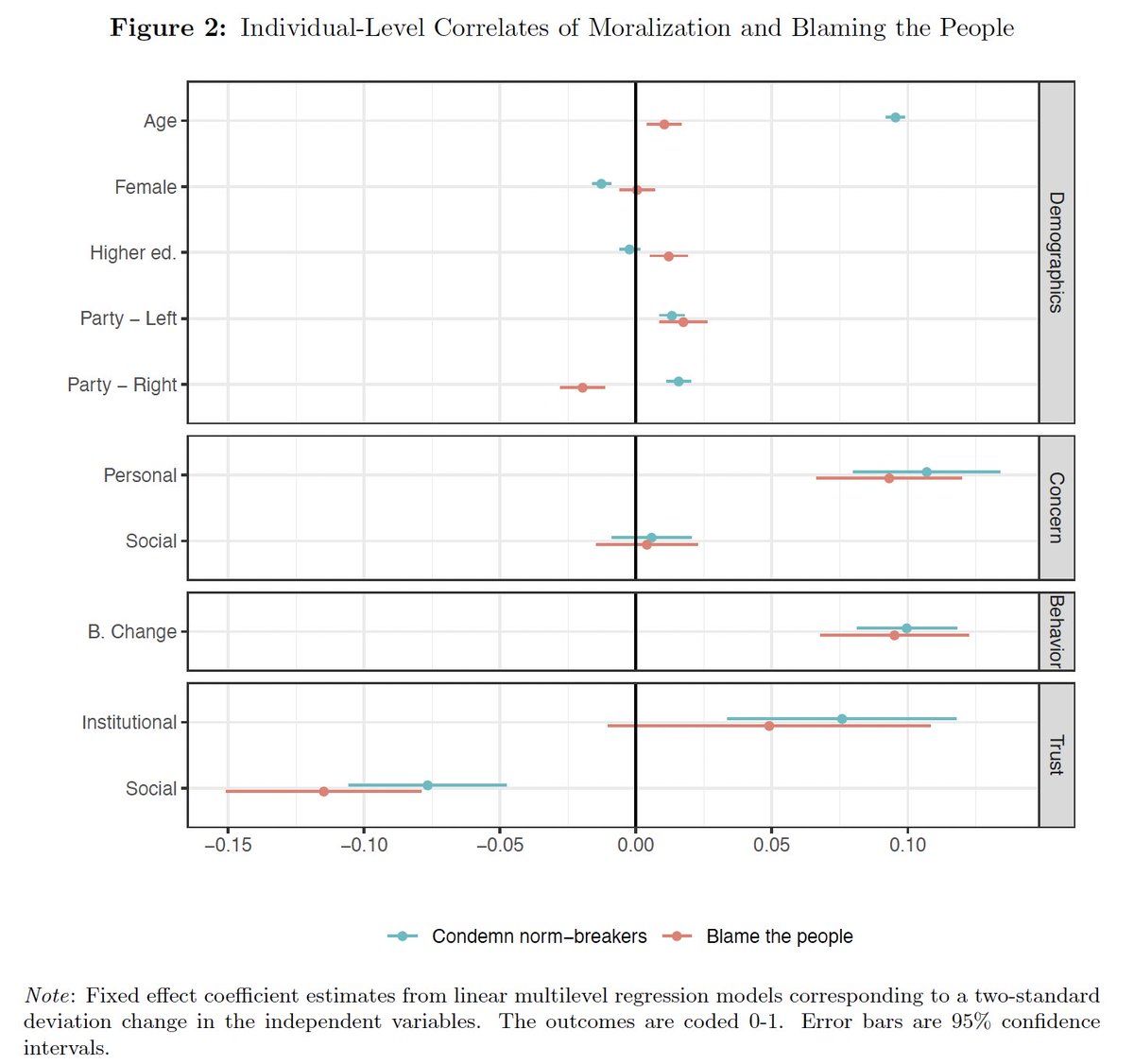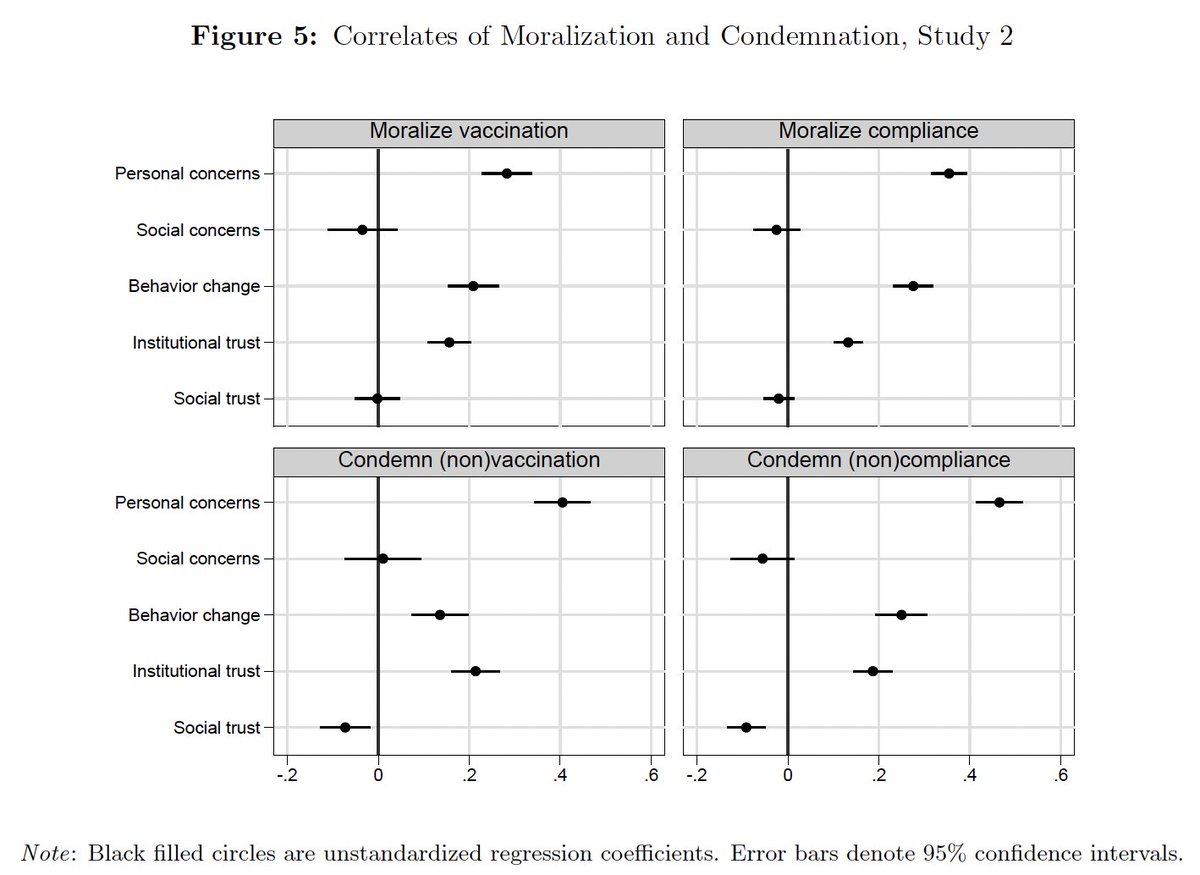
🚨New paper🚨
Why do people condemn others during the COVID-19 pandemic?
Rapid norm change is almost always related to moralization. But do people condemn to protect themselves or to protect others?
Spoiler alert! It is about self-interest: psyarxiv.com/3rczg/
🧵(1/10)
Why do people condemn others during the COVID-19 pandemic?
Rapid norm change is almost always related to moralization. But do people condemn to protect themselves or to protect others?
Spoiler alert! It is about self-interest: psyarxiv.com/3rczg/
🧵(1/10)

Moralization is related to norm changes. One well-studied example is smoking (sciencedirect.com/science/articl…). Moralization and condemnation are tools humans as social animals use to incentivize others to change behavior (doi.org/10.1016/j.evol…). (2/10)
The pandemic requires rapid changes. Using surveys collected from April '20 to Nov '20 in 8 countries (🇺🇸 🇩🇰 🇫🇷 🇬🇧 🇸🇪 🇩🇪 🇭🇺 🇮🇹), we ask if this led people to also engage in moralization? Yes! The majority find it justified to blame and condemn those that do not comply. (3/10) 

Who moralizes? Some argue that moralizers do it for the good of society (link.springer.com/article/10.100…). Others (incl. me) argue that moralization is self-interested: We try to get people to comply with what is in our own interest (royalsocietypublishing.org/doi/full/10.10…). (4/10)
Consistent with the role of self-interest, we find that *personal* concern about COVID-19 is related to condemnation but not concern for others (i.e., social concern). Furthermore, people who themselves change behavior and trust authorities condemn more. (5/10) 

The association with personal concern is robust across countries, as is the lack of association with social concern. Analyses using a panel component of our data suggest that the association is likely a causal effect from concern to condemnation. (6/10) 

In a 2nd pre-registered study in the UK, we replicate our finding (using distinct scales for moralization and condemnation) and show that personal concern also relates to condemnation of vaccination decisions. Those who condemn anti-vaxxers fear for themselves. (7/10) 

What are the implications? Cases build up in Europe and this is will likely increase fear. Accordingly, condemnation and social conflict will increase over the next months between vaxxers and anti-vaxxers. (8/10)
While moralization is an effective tool when norms are in flux, moralization is unlikely to work in the context of an entrenched conflict between two established groups. A focus for authorities over the next months is to show leadership and keep conflict manageable. (9/10)
The paper was tirelessly led by @boralexander1 and written together with @FrederikJuhlJr1 and @Fly_Lindholt. Data and command files are available here: osf.io/byrh7/. (10/10)
• • •
Missing some Tweet in this thread? You can try to
force a refresh













